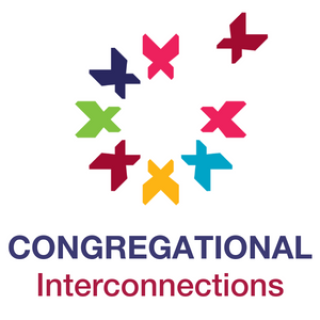Leadership Development
Many congregations only think about developing new leaders around the time that the nominating committee is looking for potential board members. Instead, I recommend that congregations see leadership development as part of an arc of faith development that includes not just leadership skills, but also leadership sensibilities and faith development. See below for a list of competencies and resource pages.
We on your UUA Congregational Life Staff want you to spend your leadership development energy on relationship-building and connecting individuals to meaningful service, so we offer affordable online leadership development courses that your potential and seasoned leaders can take take in parallel, then to meet and learn together:
Centered Leadership Part 1: For new members and those interested in possible leadership. Covers covenant, healthy communication and boundaries, shared ministry, and stewardship. Also provides and introduction to congregational polity, UU theologies, and the wider UU movement.
Centered Leadership Part 2: Includes family and other systems thinking applied to congregations. (Similar to Healthy Congregations®) Learn healthy leadership practices, communication and conflict skills, the importance of being mission-focused and how to communicate across differences.
Strategic Leadership: Develop a deeper understanding of how to focus your congregation on mission, build trust and develop a cohesive leadership team. Learn about stewardship, strategic planning, annual goal setting and ministry assessment and the basics of congregational governance.
Adaptive Leadership: Develop advanced leadership skills that will help identify challenges. Learn how to help others see challenges in new ways, empower others and find creative solutions together. This course includes working on a case study with other participants.
Role-Based Training
- Board Member Training: High-functioning congregational boards have committed members who understand their governance, who understand their roles, who work as a trust-based team, who understand their fiduciary duties and who still take time to attend to the spiritual dimension of their leadership. This free training is divided into twelve sections, so that you can use each one as a shared learning experience as part of your board meetings.
Elements of an Effective Leadership Development Plan
- Create a clear path to leadership in your congregation.
- Identify potential leaders and inviting them into discernment about their skills, gifts and passions in service of the congregation's mission.
- Provide opportunities for new and seasoned leaders to learn and develop leadership skills, sensibilities and self-culture.
- Foster a team culture of vulnerability-based trust.
- Help match people to service opportunities based on their passions
- Provide opportunities for ongoing discernment and assessment of:
- Their personal growth and development.
- How well the mission of the congregation is being served by their contribution
Competencies for Congregational Leaders
- Contextual Sensibility: Developing an understanding of changes in society and how those changes impact our churches. (In today’s world each congregation has to make a case for itself to a skeptical public.)
- Multicultural Sensibility: Understanding how race and privilege operate in our lives and institutions and actively working to dismantle racism. Also understanding how culture affects beliefs, values and mental models and having strategies to bridge them.
- Generational Sensibility: Understanding that along with life-stage differences, there are differences in generations based on the societal shifts they experience during their different life stages. This manifests in different attitudes and values in congregational life.
- Systems Sensibility: The ability to understand that we are all interconnected and interrelated. A change in one part can have an effect on the other parts, even if we can’t see direct causation. Being able to “get on the balcony” to get the big picture. Understanding the idea of mental models and how we can challenge our own.
- Skills to Grow Other Leaders: A generosity of spirit and collegiality in identifying, mentoring, training and supporting other and potential leaders.
- Change Skills: Understanding the dynamics of change, identifying adaptive challenges and being able to engage in change strategies
- Conflict Transformation Skills: Understanding the difference between unhealthy and creative conflict. Being able to diffuse unhealthy conflict. Being able to be present to and engage in healthy conflict.
- Communications Skills: Understanding different styles of giving and receiving information and being able to communicate across those styles.
- Management Skills: Basic skills to keep the congregation running smoothly, effectively and with fiscal responsibility.
- Financial Management Skills: Understanding the basics of cash management, financial oversight and separation of duties around income, check writing, check signing and reconciling accounts to provide checks and balances.
- Embodying UU “DNA”: Developing and embodying faithfulness to core UU values and theology. Knowing UU history and traditions.
- Mission Focused: Purpose-Driven Leadership. Having a clear sense of the mission of the congregation and keeping the congregation focused on that mission.
- Spiritually Grounded: A clear, positive understanding and personal practice of one’s own faith in our liberal religious tradition. Able to “translate” and not be reactive to the language, beliefs or practices of other faith traditions.
- Emotional Intelligence: Forbearance. Presence and Functioning. Knowing and taking responsibility for one’s own functioning in the system. Modeling humility when a mistake is made, modeling grace when another makes a mistake. Being aware of what one’s triggers are.







